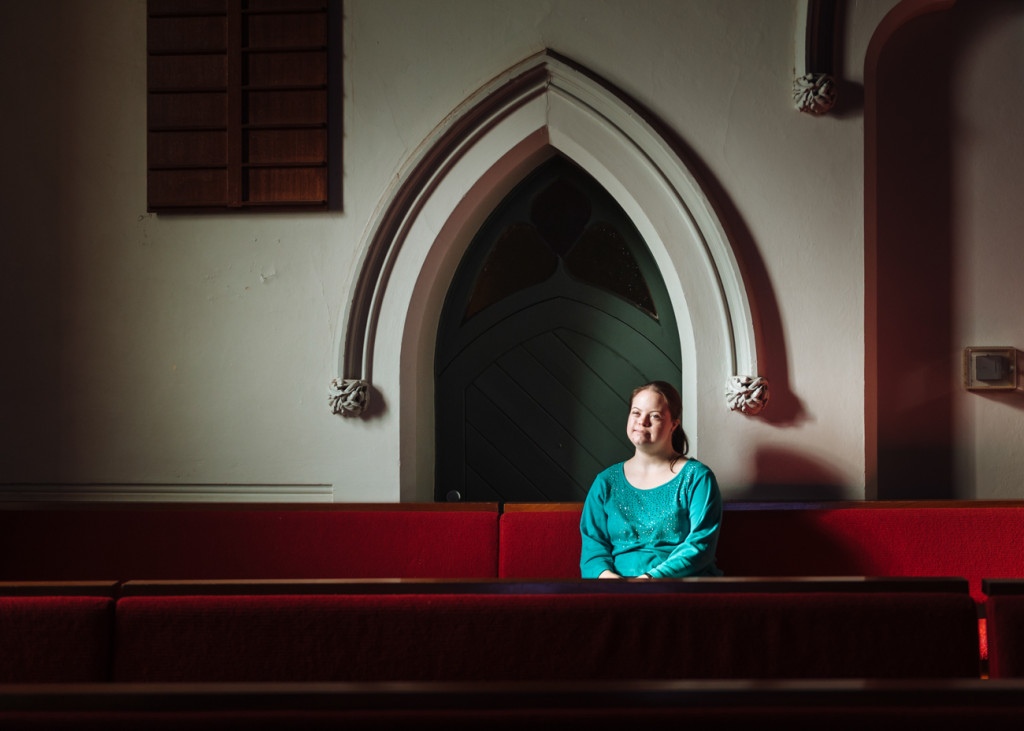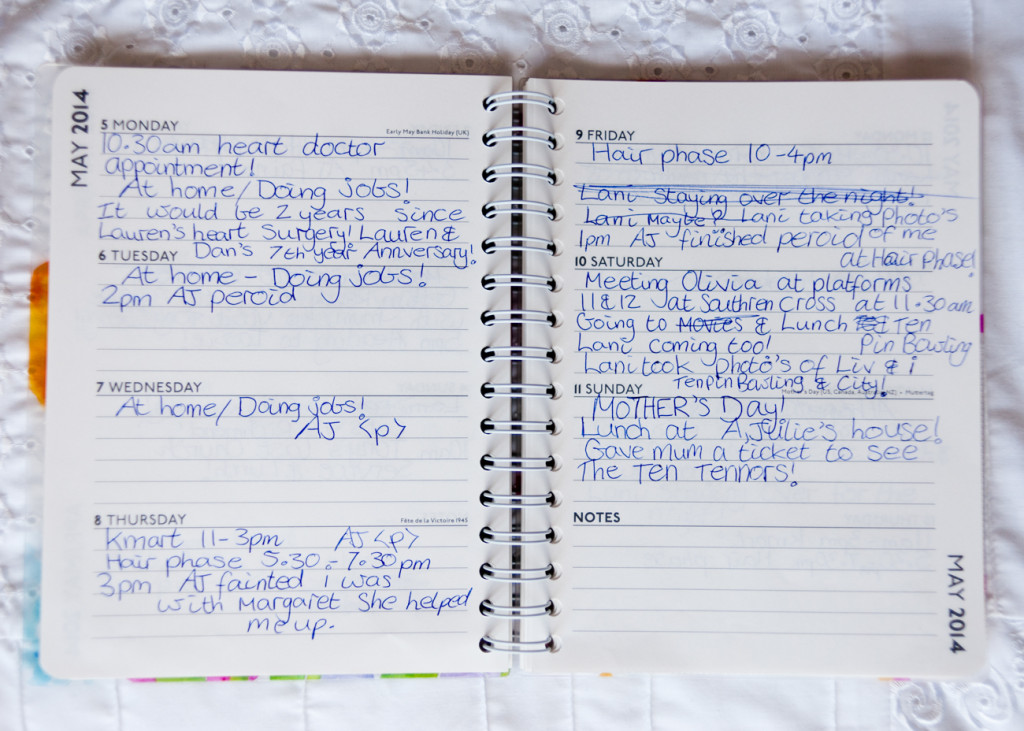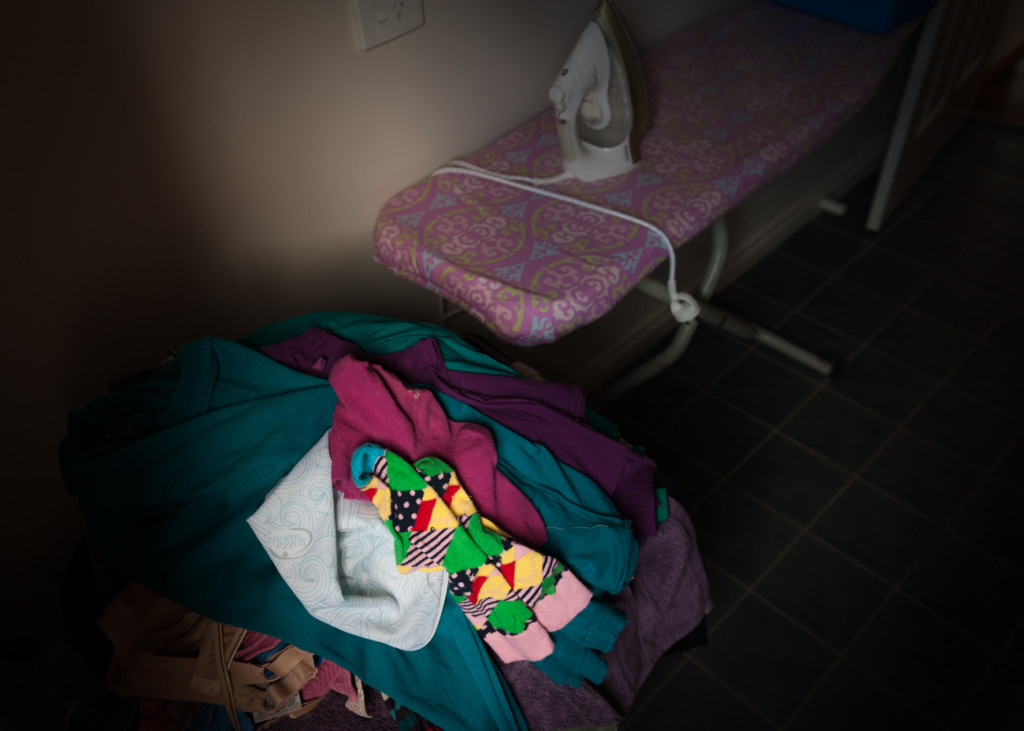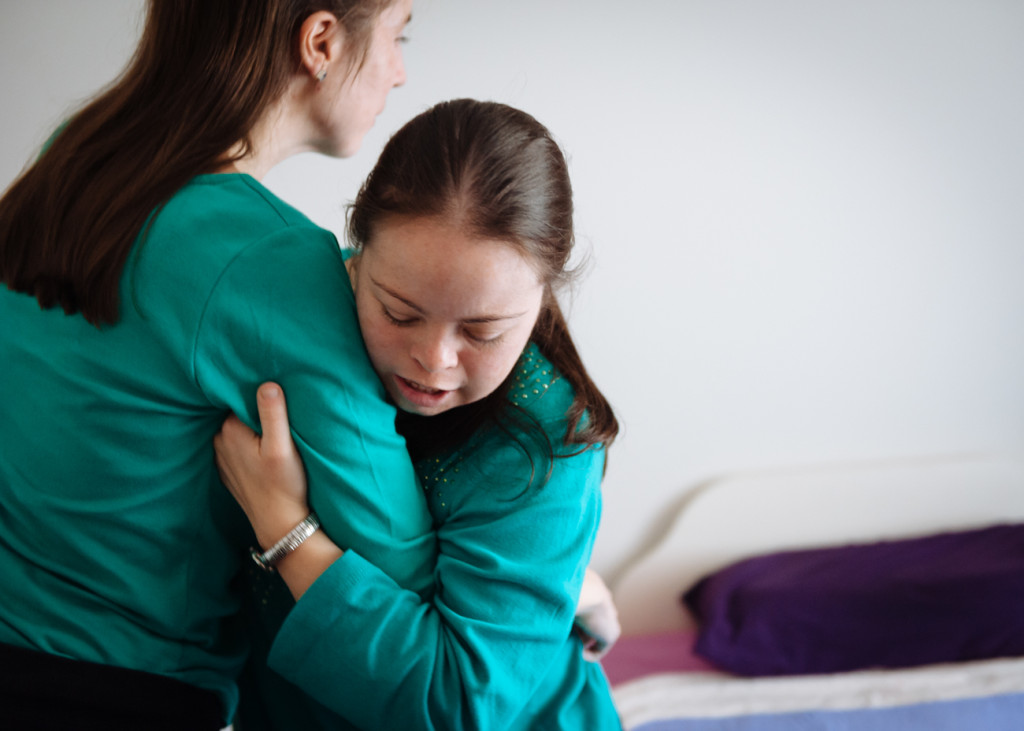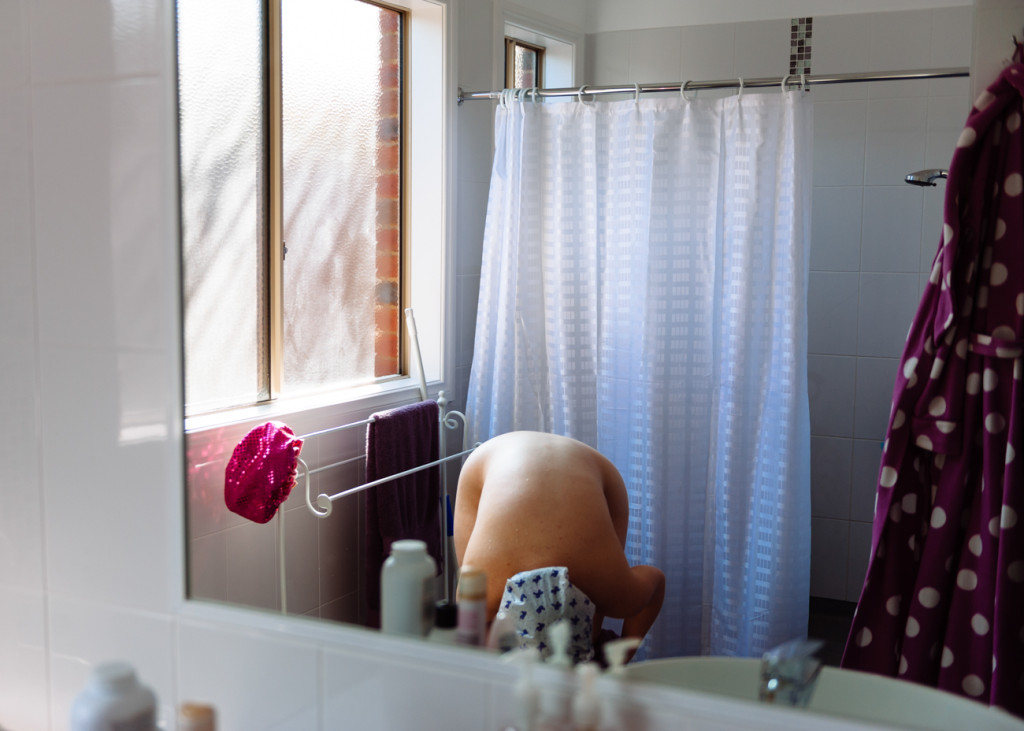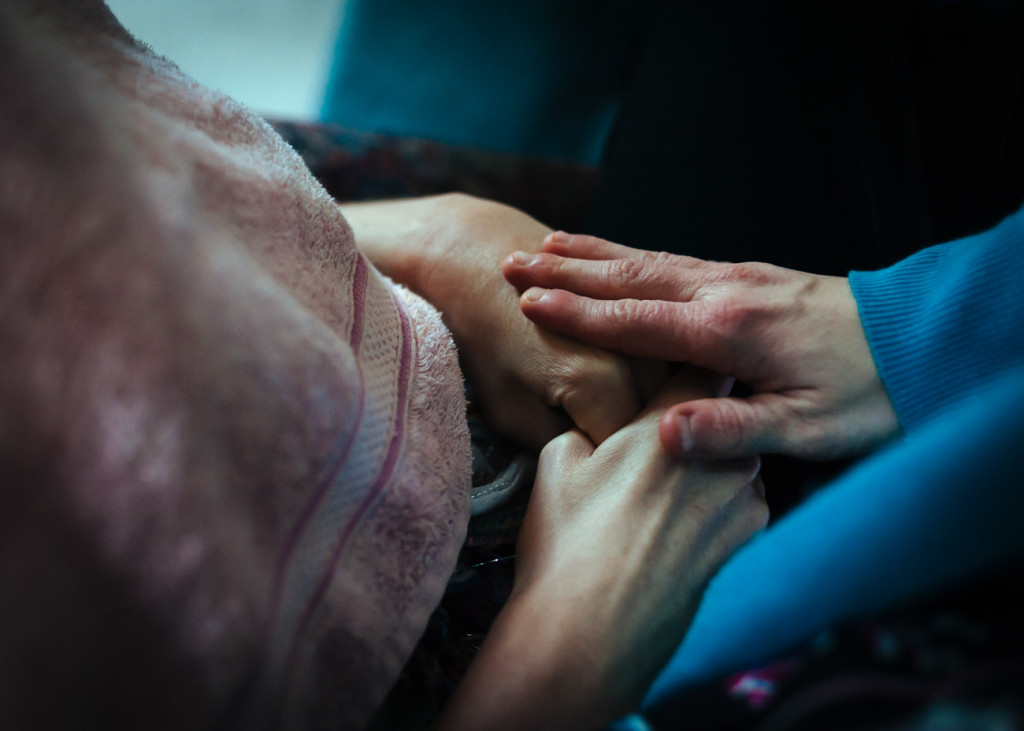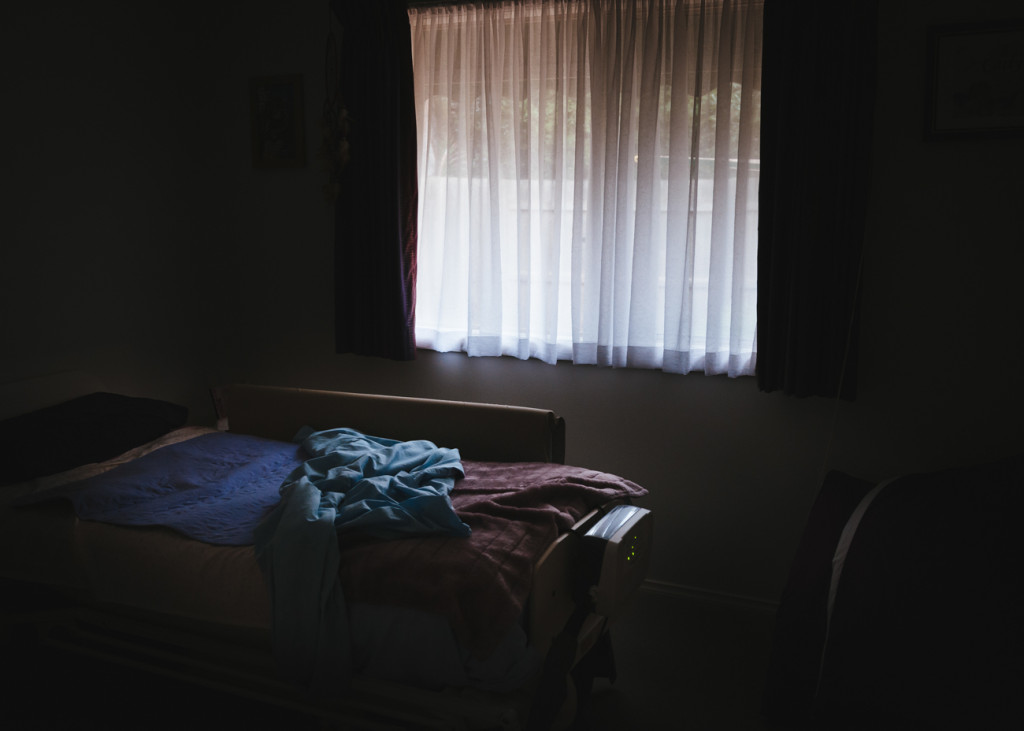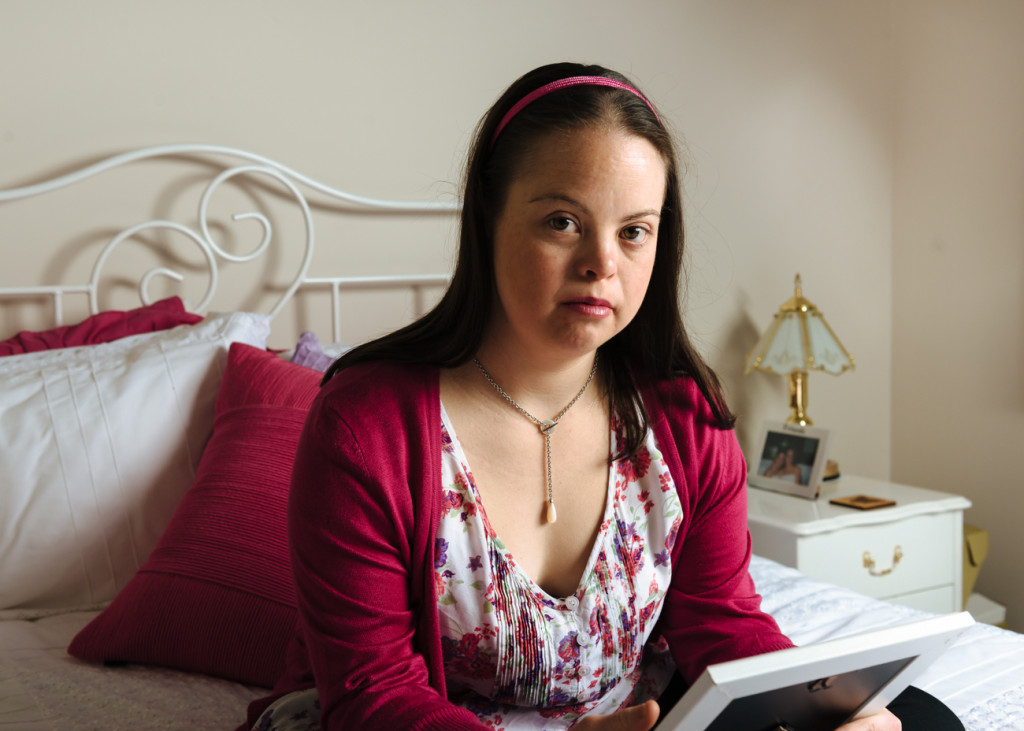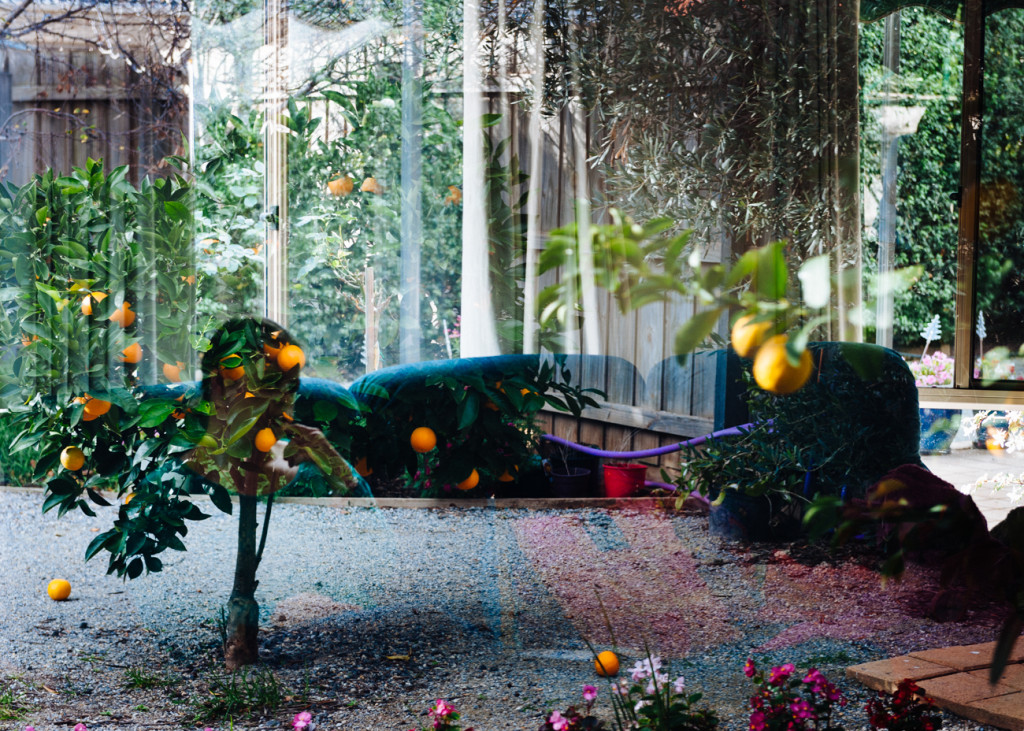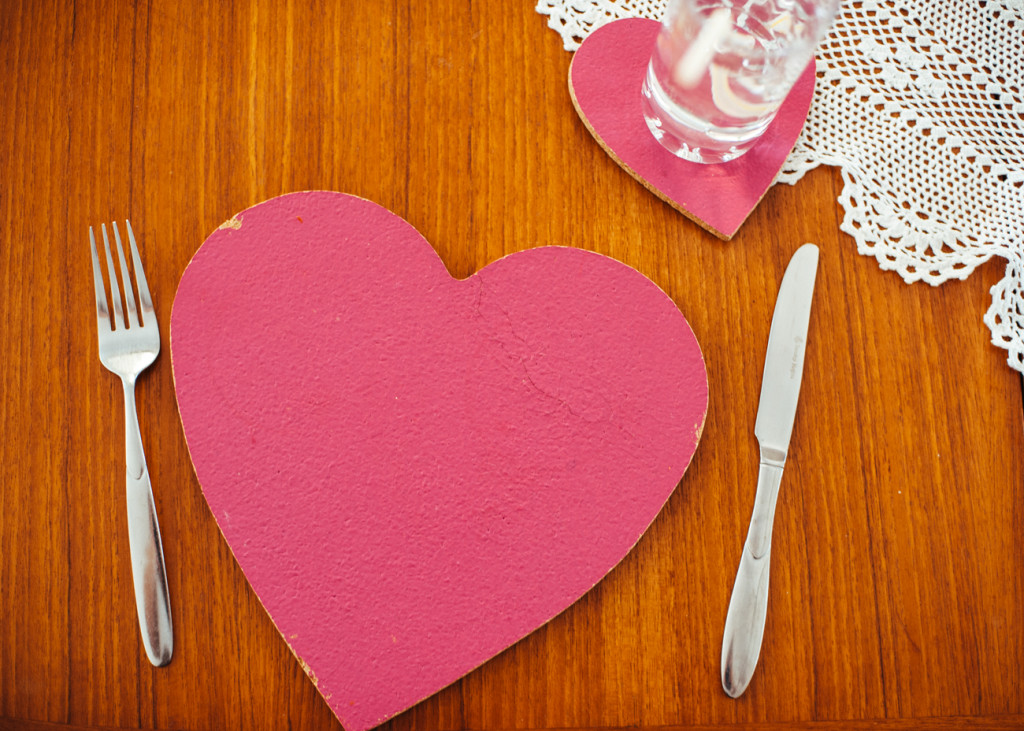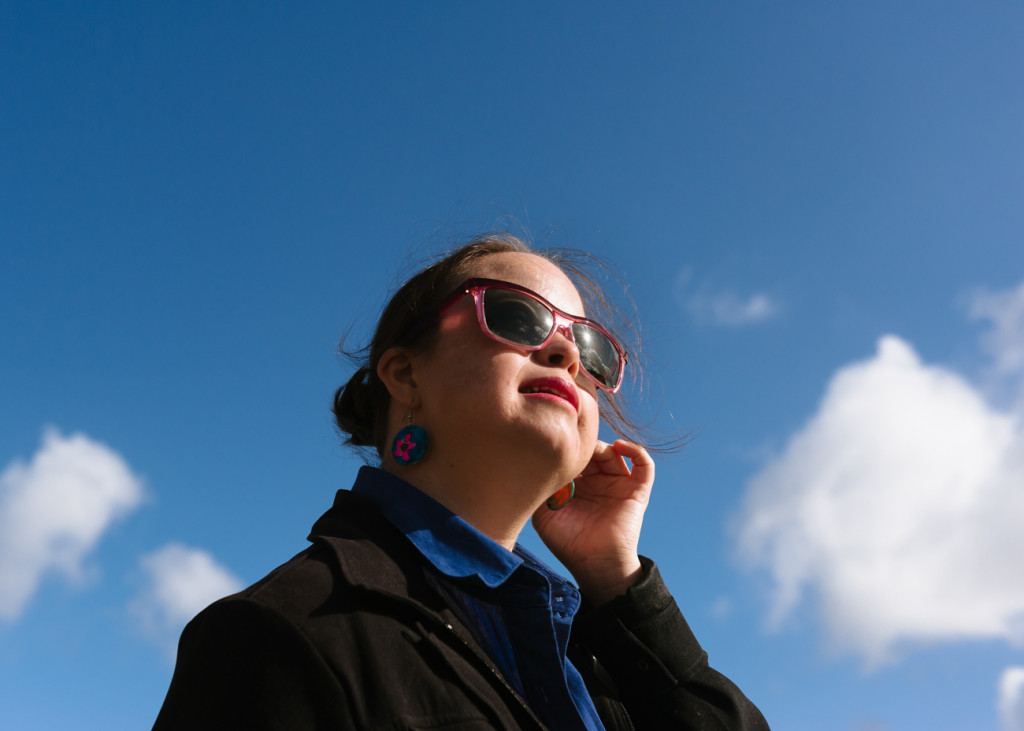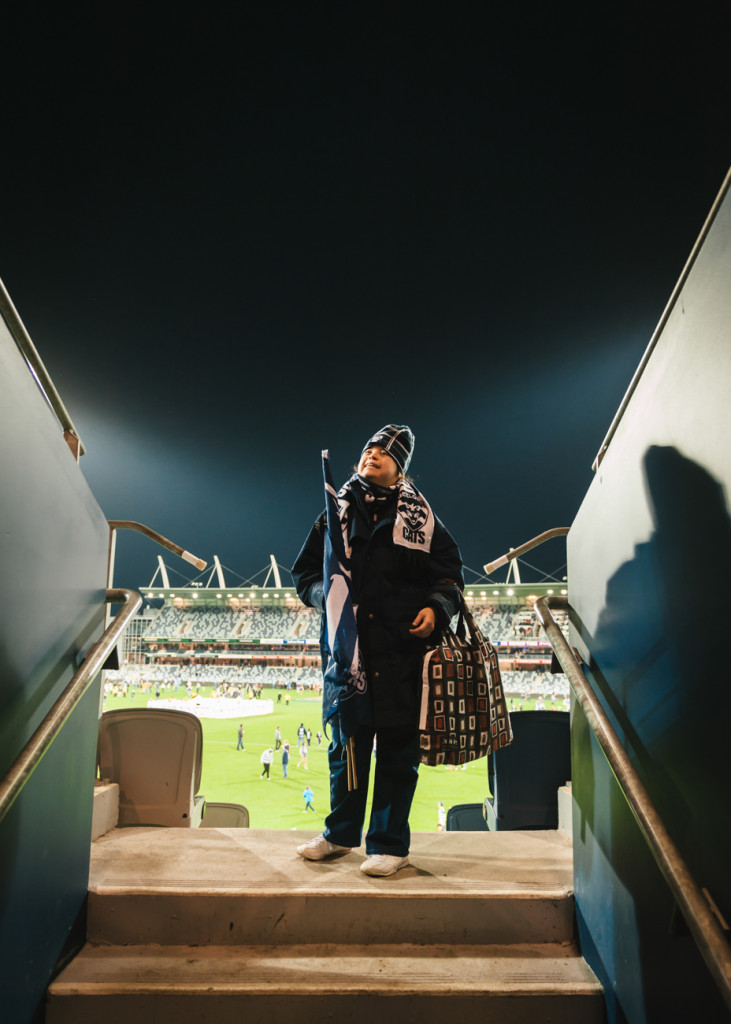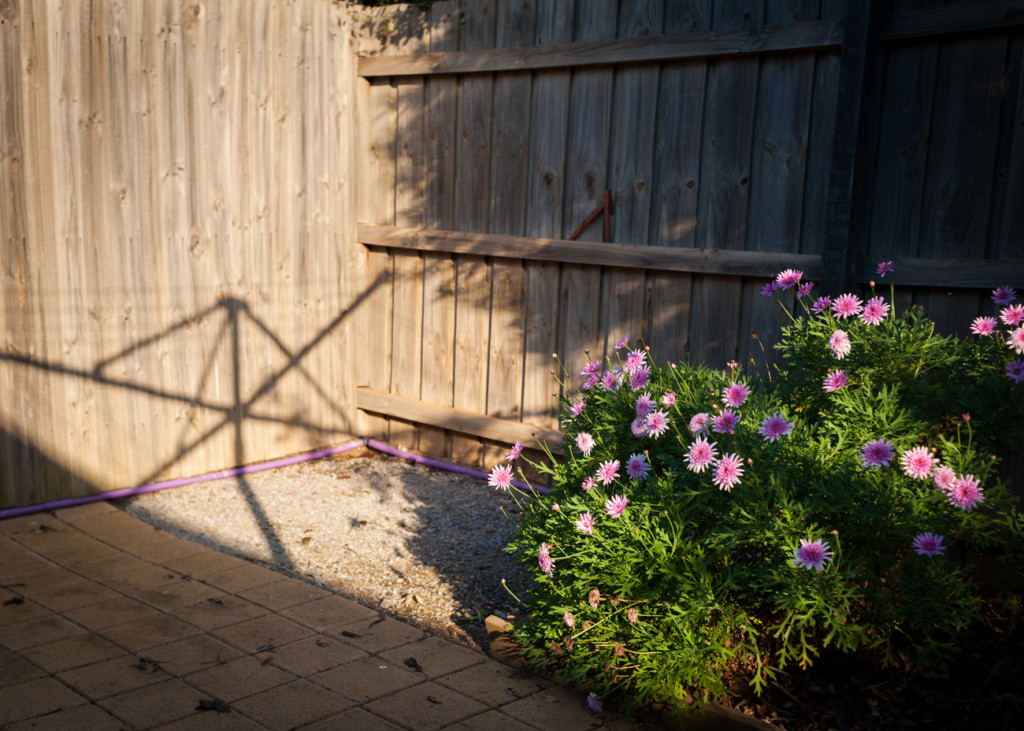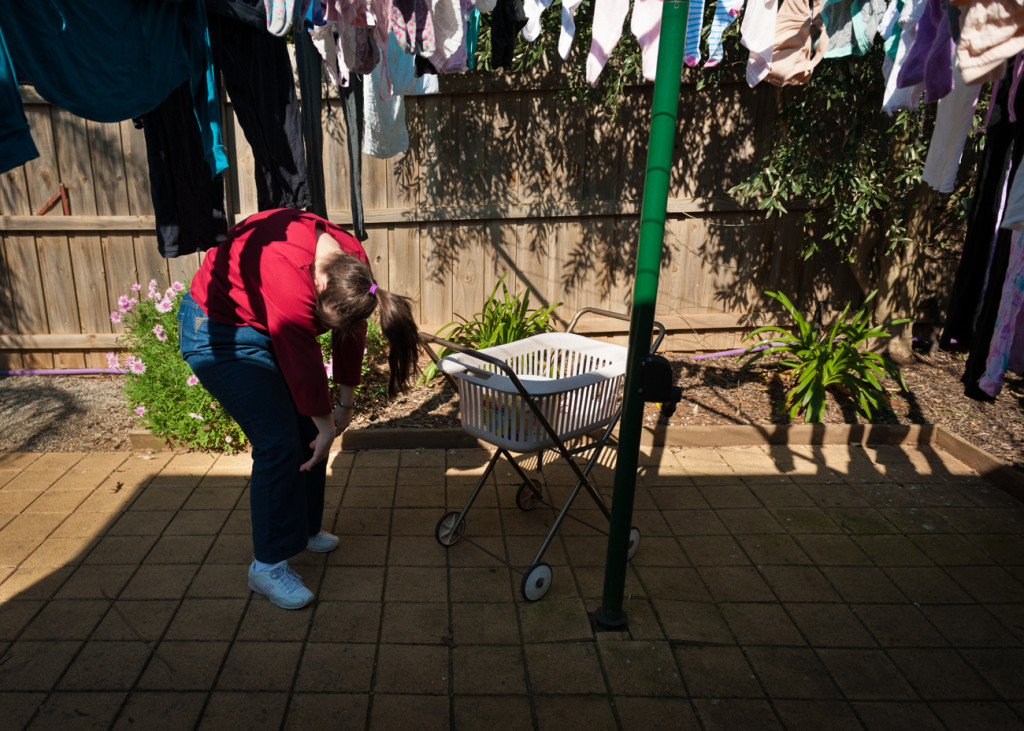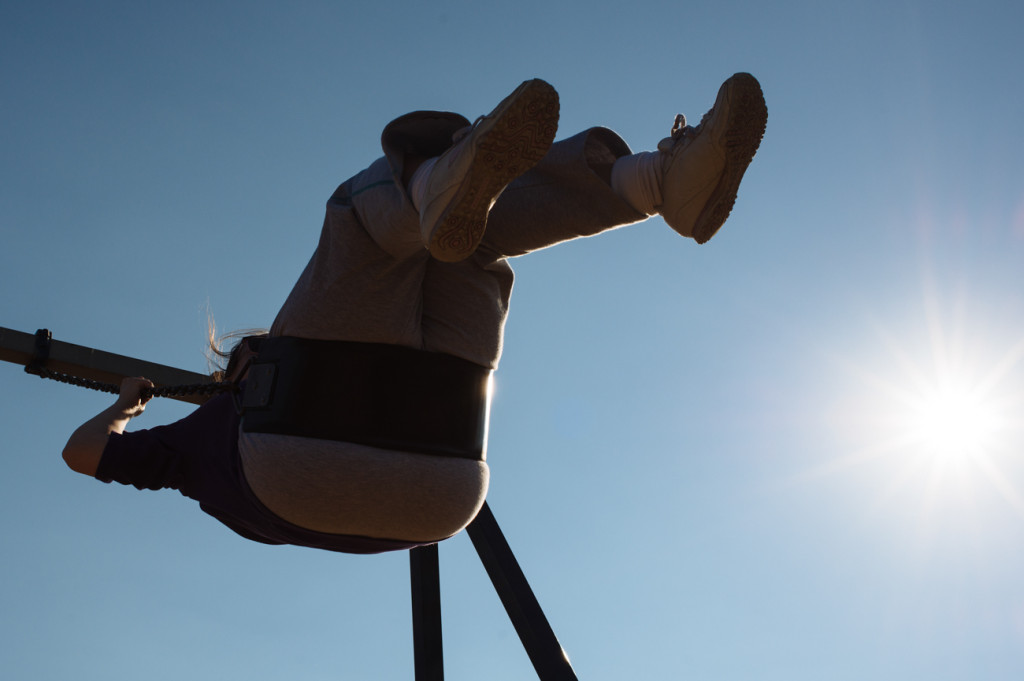A page from Alyssa's diary. I love watching Alyssa write in her diary, carefully recording the days as they roll by. Dinners at Grandma's, doctor's appointments, birthdays, and anniversaries. She fits neatly within the schedule of her family, a cog in a well-oiled machine that allows Lois to go to work and keeps everyone living together, under the same roof.
Alyssa wakes. The predictability of her schedule may feel suffocating for some. Monotonous. But there is a comfort in it for her. A security and familiarity. Every day the alarm goes off at the same time.
Playgroup and ironing on Mondays. Chores on Tuesdays and Wednesdays. Work at Kmart on Thursdays. Work at the local hairdresser on Thursday nights and Fridays. Football on the weekends. Week in. Week out.
Alyssa slowly moves her sister Carly into bed. Because of Carly's stiffness, Alyssa has to rock her slowly from one foot to the other until she is close enough to lower her into bed. Alyssa was 21 years old when Carly, who had been healthy until then, first started to lose her balance. First, she fell off her bike during the Christmas holidays. Later, she found it hard to pick up a glass. Eventually, she lost her confidence driving and needed tutors to help with her studies. Her brain just wasn't working as it was supposed to. Carly now requires constant care. She is wheelchair-bound and has difficulty communicating her feelings. On Mondays, Tuesdays, and Wednesdays, while Lois is at work, Alyssa is Carly's primary caregiver.
Once Carly is organised for the day, Alyssa takes a shower herself.
"You have to try to be extra, extra patient when she doesn't answer you. It's like: 'Come on Carly, come on sweetheart. Give me a yes or a no,'" Alyssa says about caring for Carly each day.
Carly's bedroom. Her mom, Lois, had a special bed installed for her to sleep in. The mattress moves constantly to relieve pressure on Carly's body while she sleeps. "I do think about the future, and how the days roll by. It gets a bit hard. But we're family and we stick together," Alyssa says about caring for her sister, Carly, who has an undiagnosed neurological condition.
When we're alone, Alyssa opens up to me. Most of the time we talk about Lauren Kate, her "very special friend." The two had been inseparable since meeting in high school. They traveled together, made their debut together, and someday wanted to be each other's bridesmaids. Last year, on Lois' birthday, Lauren died suddenly at home. Her pacemaker stopped working. Just like that, Alyssa's best friend disappeared.
The days are quiet, still. The afternoon silence is broken by the crackle of the radio through a monitor linking the living room to Carly's room while she sleeps. Alyssa spends long afternoons watching television. Her favorite show is "Bold and the Beautiful."
This home has so much joy. The level of silliness is far beyond another house with three adults living together. This is a genuinely happy home with a lot of love, a lot of jokes, and a lot of laughter. But I can't help wonder about the future. What happens to people like Alyssa when they can no longer live at home?
Alyssa waits for the bus to work. She's a fitting room assistant at Kmart. On the way to work, I told Alyssa about a first date I went on. The long wait for a follow-up text message suggested there wouldn't be a second. I guess I wanted to laugh with her about it. "At least you go on dates," she replied matter of factly. The truth in her comment floors me. It's hard to know what to say back. The lump in my throat appears again. There is someone out there for everyone, right? That's what I tell myself, that's what I tell other single friends. Why should I respond any differently to Alyssa? "I'd be a great mum, I just need to learn how to cook so I can learn to take care of my family."
A Geelong Football Club supporter, Alyssa spends cold Friday nights at the football stadium each winter. She has a permanent seat at ground level where she yells at the players, knowing each one by name and looks.
The backyard at Alyssa's home.
Alyssa trusts herself and her emotions, rarely second-guessing herself. I envy her for that. She learned long ago to just be herself. She is enough and she reminds me that I am enough, too. She is genuinely self-assured. Not overly confident, not showy, just comfortable in her skin. One time she sang karaoke for Carly and me, song after song, loud and completely off-key. "It never gives me a high score," she says, shrugging. And then there's the dancing.
Alyssa spends some time out of the house. We walk to a nearby playground and swing on the swings. "I love my life because I've got wonderful people in it, people I love so much, and that's probably all I need," Alyssa says.
